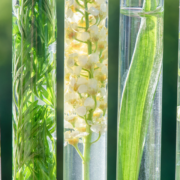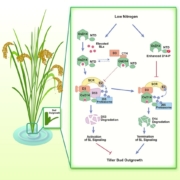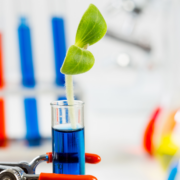
Plantae Presents - From Dorm Rooms to Discoveries: Inspiring Undergraduates to Pursue Academic Research
Blog, Education, Plantae WebinarsPlantae Presents - From Dorm Rooms to Discoveries: Inspiring Undergraduates to Pursue Academic Research
Featuring Neha Bhatia, Kevin Cox, Jess Gersony and Jason Rauscher
When: March 26, 2025, at
7:00 AM PDT | 10:00 AM EDT | 2:00 PM GMT | 10 PM Beijing
About this Webinar
The schedule…

How To Start Your Coding Journey
Blog, EducationWhile learning how to code may seem like a daunting task, having the ability to code can help streamline your research in plant science. Knowing how to code can significantly improve your data analysis and visualization, and help you automate tasks - not to mention that it looks good on your CV. Although…

Plantae Presents - Pathways to Impact: Translating Plant Science Research Into Real-world Applications
Blog, Education, Plantae WebinarsPlantae Presents - Pathways to Impact: Translating Plant Science Research Into Real-world Applications
Featuring MariCarmen Alamar, Anne Runkel and Katarzyna Retzer
When: Thursday, February 20, 2025, at
7:00 AM PST | 10:00 AM EST | 3:00 PM GMT | 11 PM Beijing
About this Webinar
This webinar…

Classical Botany in the Shadow of Molecular Science: Why It Still Matters
Blog, EducationThe Decline of Classical Botany
Though many of us may recognize the word ‘botany’, we may also associate it with dusty books and 18th century science. ‘Botany’ is not used frequently in our vocabulary. The origins of the word are likely Greek, from botane (meaning plant or herb) and dates…

Overcoming a Blank Page: How to Build Healthy Writing Habits
Blog, EducationIs there anything more daunting than beginning a new writing project and staring at a blank page for days or even weeks? This common challenge often feels overwhelming, but there are strategies to overcome it. Scientific writing can be especially demanding. Crafting a journal article requires simplifying…

Plantae Presents - Climate Extremes and Plant Sciences: Balancing Innovation with Environmental Stewardship
Blog, Education, Plantae WebinarsPlantae Presents - Climate Extremes and Plant Sciences: Balancing Innovation with Environmental Stewardship
Featuring Li Yan, Gaurav Zinta, Justin G. A. Whitehill and Jesse Lasky
When: January 21, 2025, at
9:00 AM Beijing | 1:00 AM GMT | 6:30 AM IST | 8:00 PM EST (on 01/20)
About this Webinar
Climate…

Regulatory mechanisms of strigolactone perception in rice
Plant Science Research Weekly, Upcoming Plantae PresentsStrigolactones (SLs), a group of carotenoid-derived small signaling molecules and a class of phytohormones, play key roles in regulating various growth and developmental processes in plants. Additionally, they act as rhizosphere signaling molecules that promote symbiosis with arbuscular mycorrhizal (AM)…

How to Choose a Suitable Statistical Method for Your Experiment
EducationIntroduction:
In plant science - as in most exact sciences - there are many experimental routes to answer specific research questions. These experiments can range from studying gene expression of plants under stress conditions to observing phenotypic traits like plant height or yield. To derive meaningful…

Plantae Presents: Future of NGS Technologies
Blog, Education, Plantae WebinarsPlantae Presents: Future of NGS Technologies
Featuring Leonie Luginbuehl, Kumud Saini, and Senjuti Sinharoy
When: December 17, 2024, at
8:00 AM PST | 11:00 AM EST | 9:30 PM IST | 12:00 AM Beijing
About this Webinar
Join us for an insightful webinar, "The Future of NGS Technologies," where…

